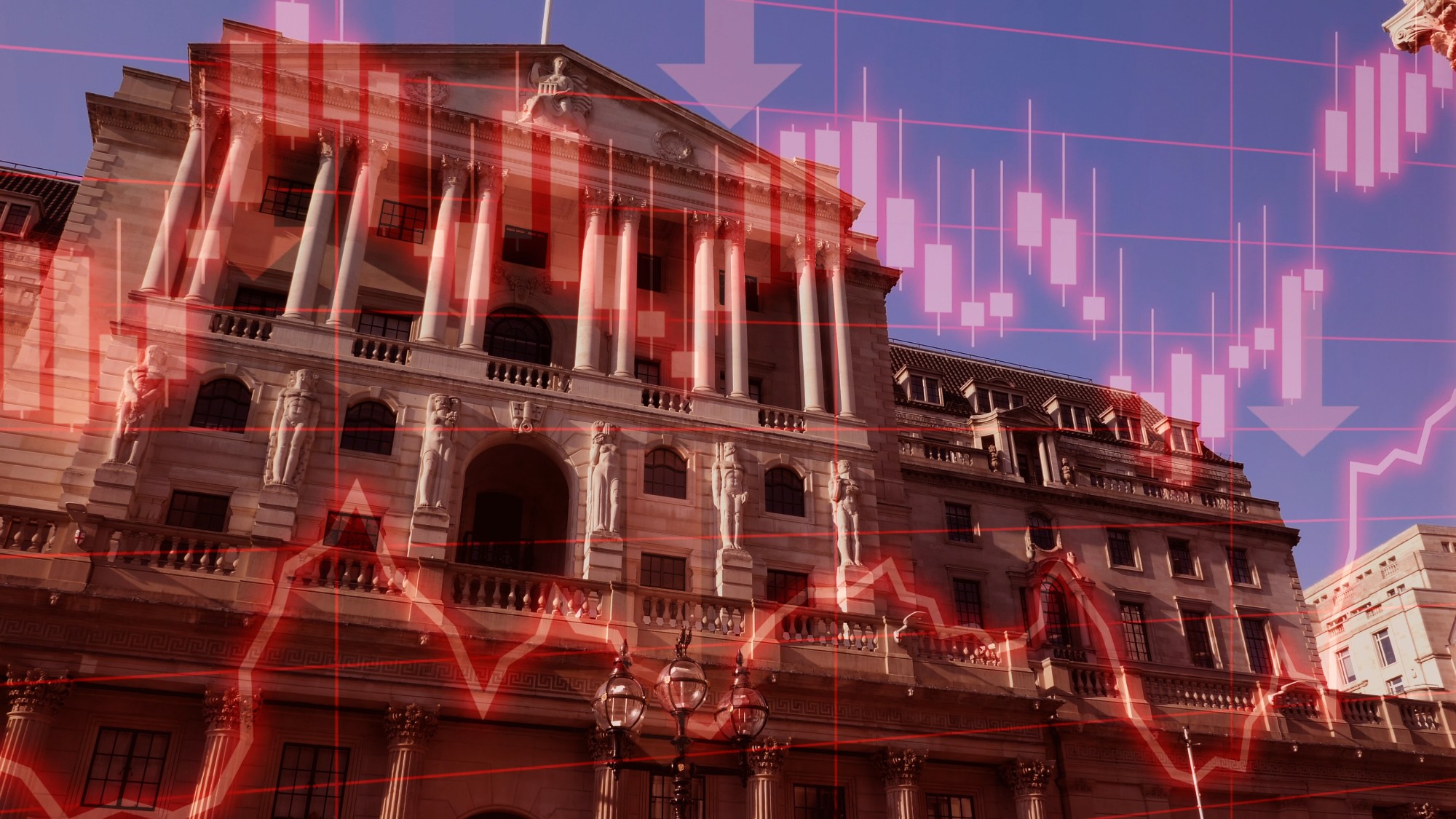What recession could mean for your finances
Shrinking of the economy may result in job losses, lower wages and a credit crunch

A free daily email with the biggest news stories of the day – and the best features from TheWeek.com
You are now subscribed
Your newsletter sign-up was successful
News that the UK entered a recession at the end of 2023 has triggered fears about the potential impacts on borrowing, jobs and wages.
Latest Official for National Statistics (ONS) data shows that gross domestic product (GDP) shrank by 0.3% in the fourth quarter of last year. Coming after a 0.1% contraction between July and September, the second consecutive quarter of negative growth means the UK is technically in recession.
The problems caused by a "shrinking economy", said The Times Money Mentor, can "trickle down" into our everyday lives. But the "pain of recession" is not typically felt equally across society, said the BBC, and the poorest often struggle, particularly benefit recipients and those on fixed incomes "if the government decides to spend less on public services".
The Week
Escape your echo chamber. Get the facts behind the news, plus analysis from multiple perspectives.

Sign up for The Week's Free Newsletters
From our morning news briefing to a weekly Good News Newsletter, get the best of The Week delivered directly to your inbox.
From our morning news briefing to a weekly Good News Newsletter, get the best of The Week delivered directly to your inbox.
What is a recession?
A country's "economic success", said Which?, is measured by its GDP, which is based on factors such as how much people are spending and the value of the country’s exports. Two consecutive quarters of drops in GDP is defined as a recession.
A recession can be caused by "many factors", said Unbiased, but a "significant" one is when borrowing costs or interest rates “rise quicker than expected”.
Between December 2021 and August 2023, the Bank of England raised interest rates 14 times, from an all-time low of 0.1% to the current level of 5.25%. The hikes pushed up the cost of borrowing and reduced consumer spending.
Credit crunch threat
Being in recession could "ultimately be good news for mortgage holders", said This Is Money, as interest rates on borrowing often decline when the economy is not growing.
A free daily email with the biggest news stories of the day – and the best features from TheWeek.com
However, while mortgage lenders have been reducing rates in recent weeks, many are now increasing them again amid concerns that rates have been cut "too dramatically".
Banks also tend to become "more careful" about lending money during recessions, said the Skint Dad blog. So getting a credit card, loan or mortgage may become "harder" and "more expensive".
Job losses and wage cuts
A shrinking or weak economy may mean "salaries drop and redundancies rise", said The Telegraph, as businesses struggle.
Employees who keep their jobs may face "lower real-terms" pay packets to cover "higher energy bills and grocery prices", Which? said.
In such uncertain times, said Unbiased, trying to build an emergency cash fund to cover three to six months' worth of expenses is "wise", to "cushion any blow to your income". Experts also advise trying to pay off any debt and having insurance "in case the worst happens".
Good news for investors?
A recession is "generally judged to be bad news" for investors, said This Is Money, but GDP figures are backward looking and cover a period that has already "shown up" in company results.
The most important thing for investors is "what is happening now and what is forecast for the future".
A recession may call for a more "defensive style" of investing, said The Telegraph, which means picking stocks and funds that are "typically resilient during all points of the economic cycle".
How long will the latest recession last?
Analysts have described the latest recession as mild. The ONS data showed that the UK economy still grew by 0.1% over the whole of 2023.
Britain may "already be heading out of this recession", said The Spectator. The Centre for Economic and Business Research last week forecast that "recessionary pressure experienced in the second half of 2023 is not expected to persist into 2024".
Marc Shoffman is an NCTJ-qualified award-winning freelance journalist, specialising in business, property and personal finance. He has a BA in multimedia journalism from Bournemouth University and a master’s in financial journalism from City University, London. His career began at FT Business trade publication Financial Adviser, during the 2008 banking crash. In 2013, he moved to MailOnline’s personal finance section This is Money, where he covered topics ranging from mortgages and pensions to investments and even a bit of Bitcoin. Since going freelance in 2016, his work has appeared in MoneyWeek, The Times, The Mail on Sunday and on the i news site.
-
 Political cartoons for February 15
Political cartoons for February 15Cartoons Sunday's political cartoons include political ventriloquism, Europe in the middle, and more
-
 The broken water companies failing England and Wales
The broken water companies failing England and WalesExplainer With rising bills, deteriorating river health and a lack of investment, regulators face an uphill battle to stabilise the industry
-
 A thrilling foodie city in northern Japan
A thrilling foodie city in northern JapanThe Week Recommends The food scene here is ‘unspoilt’ and ‘fun’